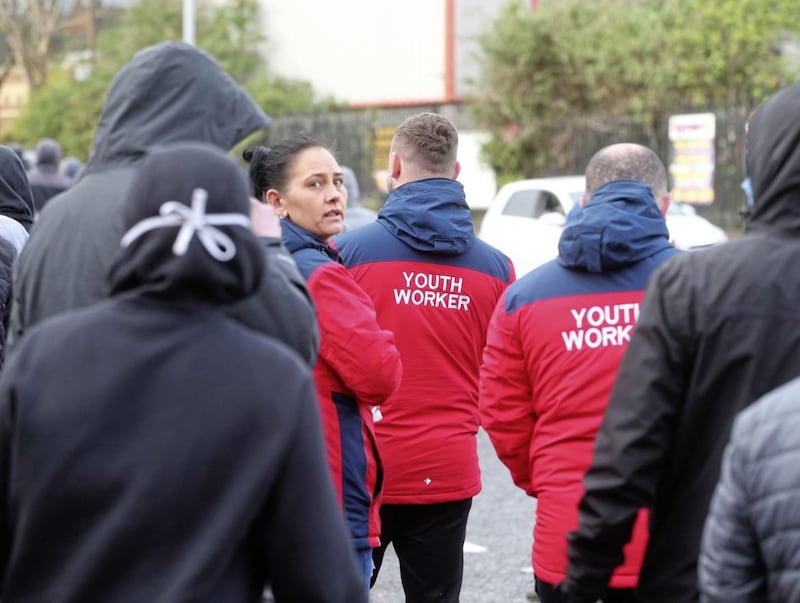There have been further calls for calm after a further night of violence which left another 19 police officers injured.
Secretary of State Brandon Lewis is to meet Stormont political parties to discuss the situation.
The violence was at a lower level last night than it had been the night before, but officers came under attack with petrol bombs, fireworks and stones.
A water cannon was used by police for the first time in six years to quell crowds gathered on a nationalist section of the Springfield Road.
A human chain of community workers was formed to prevent rioters reaching the gates at the peace wall at Lanark Way, the scene of the previous night’s tensions.
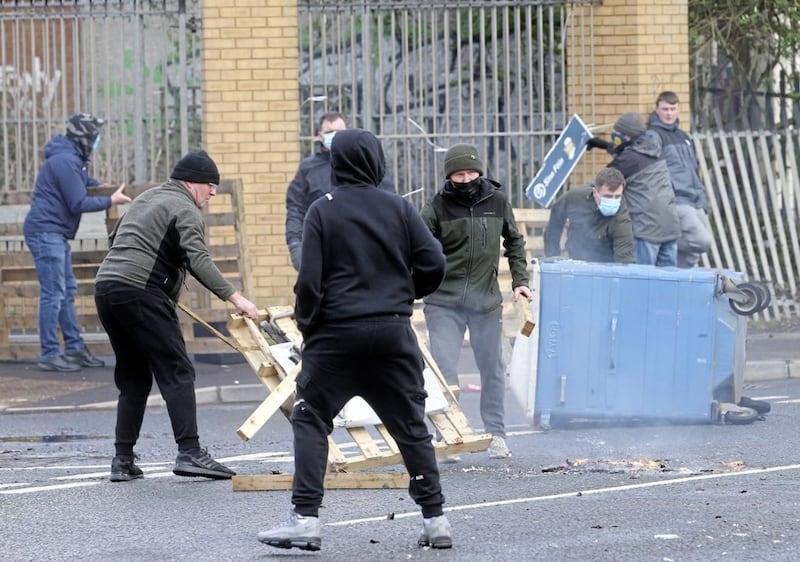
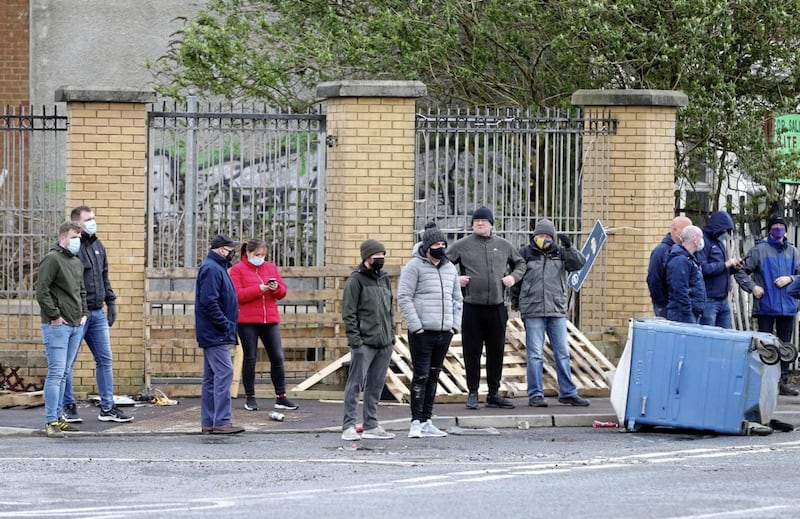
In total, 74 police officers have been injured in more than a week of violence.
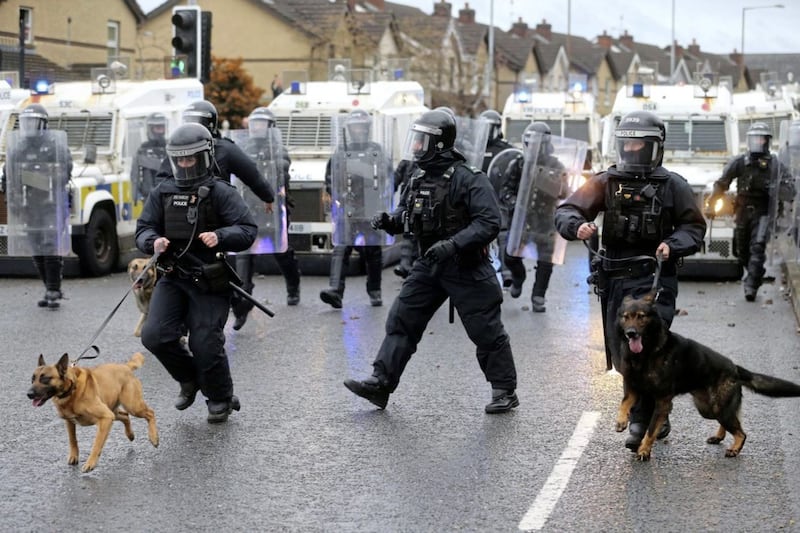
PSNI Assistant Chief Constable Jonathan Roberts said two arrests were made last night and a “significant criminal investigation” is under way.
He described the range of injuries as generally minor to limbs and bodies, and damage to hearing.
Mr Roberts said measures such as AEPs – a type of plastic bullet – and a water cannon were deployed over recent nights when police had exhausted other tactics.
Police dogs were also utilised last night, with one injured during the disorder.

“Two nights ago the disorder was spontaneous, we did not anticipate that such large crowds on both sides of the interface would turn out and would seek to attack each other and to attack police so other tactics such as water cannon were not so readily available,” he told the BBC’s Stephen Nolan Show.
“The water cannon is a lesser option, it poses less risk, it is a lesser use of force. Last night then it was our preferred option in the interests of protecting those who engage in disorder. It did not become necessary then to move to the use of AEP.”
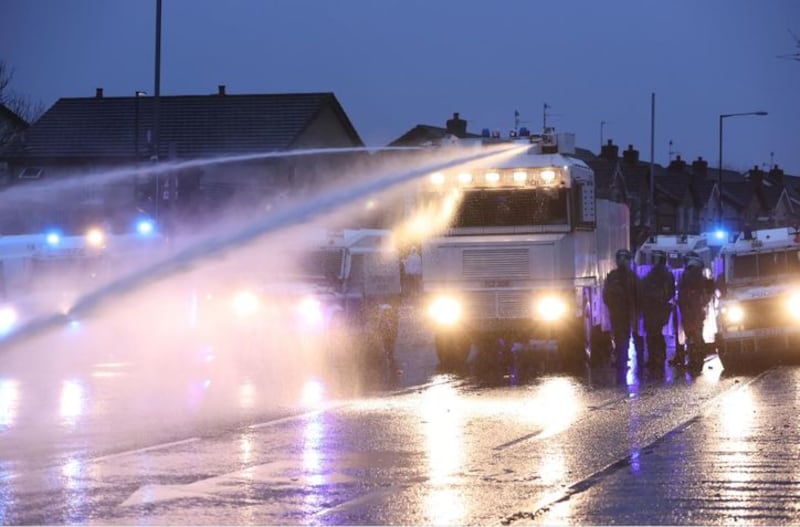
Mr Roberts said police are aware of planned protest events which have the “potential to move into disorder”.
“I would remind everybody that the health protection regulations remain in place, it is a breach of the regulations to take part in a gathering and I would encourage anybody who wishes to come out and take part in a gathering or take part in disorder not to do so,” he said.
“If necessary we will consider dissuading people or preventing people from gathering in an area but there may be other occasions when our tactic might be to allow people to gather, and gather our evidence and deal with it afterwards.”
Read more:
- Lanark Way - A flashpoint for more than 150 years
- 'Sore throat' blamed for Arlene Foster not attending Stormont debate in person
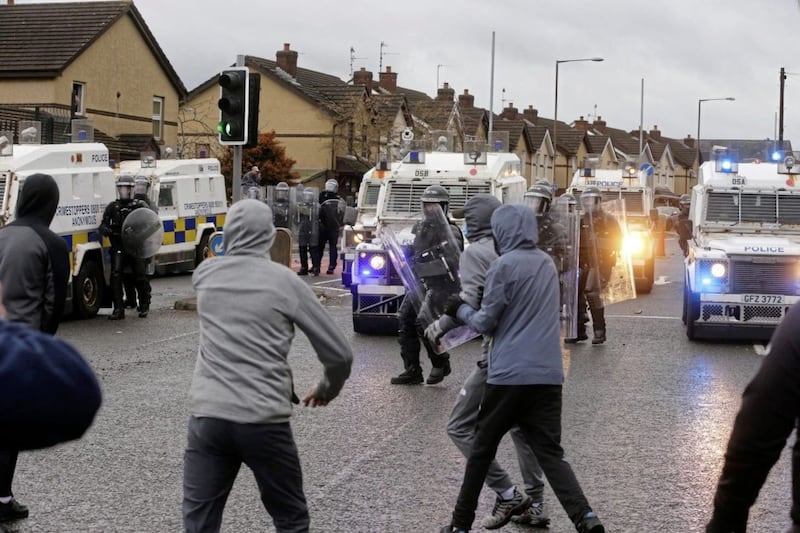
British Prime Minister Boris Johnson, Taoiseach Micheál Martin and US President Joe Biden have called for a calming of tensions.
The Stormont Assembly was recalled from Easter recess yesterday for an emergency sitting and unanimously backed a motion calling for the unequivocal condemnation of the violence and support for the rule of law.
This morning, Sinn Féin president Mary Lou McDonald said more than words are needed.
“It’s not just words, colleagues of mine, like Paul Maskey and others, were out on the Springfield Road yesterday with activists, youth workers, calming the situation and encouraging the young people who had congregated to go home and the community rallied to that,” she said.
“The nights of more than a week of loyalist violence and stoking up tensions is extremely dangerous. It needs to be faced down and positive leadership needs to be demonstrated right across every community.
“Every single one of us has an absolute obligation to contribute to calm and reassurance. The proposed protests this weekend must be called off and we need to hear that primarily from unionism.”
The violence is unfolding at a time of increasing rancour in the political sphere amid tensions over the post-Brexit Irish Sea trade border and the fallout from the police’s handling of the mass republican funeral that took place during pandemic restrictions last year.
Unionists are angry at a decision by prosecutors not to take action against 24 Sinn Féin politicians, including Deputy First Minister Michelle O’Neill, for attending the funeral of former IRA leader Bobby Storey – a decision partly related to the fact that police had engaged with organisers before the event that drew 2,000 people on to the streets.
Read more:
- Lanark Way - A flashpoint for more than 150 years
- Brian Feeney - Attempt to sectarianise unionist disorder a serious and malevolent development (premium)
